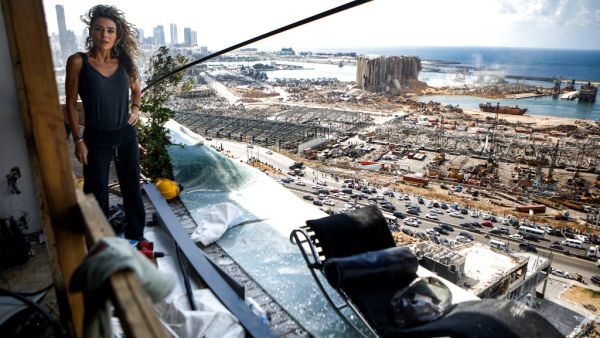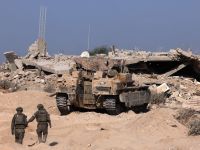Sunday’s international virtual aid summit forced Lebanon to accept that an international committee investigates the massive explosion of August 4 at the port of Beirut, which has destroyed a large swathe of the Lebanese capital.
A statement issued by the summit said, “At Lebanon’s request, the (forthcoming) assistance of an impartial, reliable and independent investigation into the August 4 blast is an immediate need and is available.”
European diplomatic sources pointed out that the phrase “at Lebanon’s request” was meant to allow Lebanese President Michel Aoun, to save face. Aoun had said that an international investigation would be “a waste of time.”
The donor countries that took part of the Sunday video-conference insisted that the aid must be “directly delivered to the Lebanese population, with utmost efficiency and transparency.”
Representatives of thirty countries, including US President Donald Trump and French President Emmanuel Macron, said in a statement issued at the end of the conference that “the participants agreed that their assistance should (…) be well coordinated under the aegis of the United Nations and provided directly to the Lebanese population, with the maximum of efficiency and transparency.”
Macron called on the international community to “move quickly” to help Lebanon, warning of “violence and chaos” as popular anger against the country’s political class continues to mount.
US President Donald Trump urged the Lebanese government to conduct a “full and transparent” investigation into the Beirut port explosion, according to a White House statement about his participation in the international summit on aid to Lebanon organised by France.
The White House said that Trump called for calm in Lebanon while recognising the “legitimacy of the calls made by the peaceful demonstrators for transparency, reforms and responsibility.”
At the end of the donors’ conference, Britain and Germany pledged more than $ 37 million in aid to Lebanon.
Following the conference, the International Monetary Fund declared that Lebanon must implement urgent financial reforms in order to be able to benefit from relief funds.
Kristalina Georgieva, Managing Director of the International Monetary Fund, criticised “the lack of political will to adopt and implement serious reforms.”
“We are ready to double our efforts, but we need unity of purpose in Lebanon,” Georgieva said. “We need the institutions as a whole to come together in determination to implement the much-needed reforms.”
“Commitment to these reforms will release billions of dollars for the benefit of the Lebanese people,” she added.
In the meantime, Hezbollah has been pushing for the survival of the Lebanese government headed by Hassan Diab, after the resignation of Minister of Information Manal Abdel Samad (Druze), Environment Minister Damianos Kattar (Maronite) and seven parliamentarians from different political parties.
A Lebanese politician said that Hezbollah’s support to Hassan Diab’s government is purely formal as the party does not object to the current government remaining as a caretaker government, but does not want it to survive for a long period.
This politician made it clear that Hezbollah’s position is not only linked to the party’s desire to control the levers of power in Lebanon in light of the recent Beirut disaster, but also linked to other considerations.
He revealed that the most important consideration for Hezbollah is to have its government still place when the verdict of the International Special Tribunal for Lebanon in the case of Rafik Hariri’s assassination is rendered on the 18th of this month.
Political sources said that Diab had persuaded Minister Kattar to delay his resignation, while Industry Minister Imad Hoballah, a member of Hezbollah, wrote on his Twitter account: “A large number of those who are demanding the resignation of the government or of its ministers do not understand the responsibility involved and want to throw Lebanon into the unknown in order to invite foreign interference, and some even want to halt the criminal and judicial investigations. We will not resign, and we will continue to assume our responsibilities, and we will not submit to pressure or blackmail.”
The Lebanese politician said that Minister Hoballah’s position should not be taken entirely seriously.
According to political sources, it has become clear that Hezbollah is currently trying to find a way to pin the blame for the blast on the previous government of Saad Hariri.
The same sources indicated in this regard that information was leaked that Youssef Fenianos, Minister of Public Works in Saad Hariri’s government, had informed the latter of the existence of quantities of ammonium nitrate stored in Warehouse 12 of Beirut Port.
The same sources noted that this keenness to blame Hariri and his government, which resigned in late October 2019, for the blast is linked to the expected ruling of the International Special Tribunal, this August 18.
The court is expected to condemn Hezbollah members for carrying out Rafik Hariri’s assassination.
This article has been adapted from its original source.








